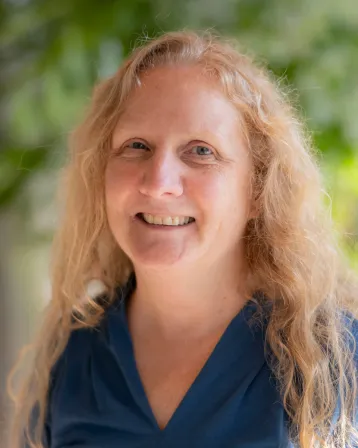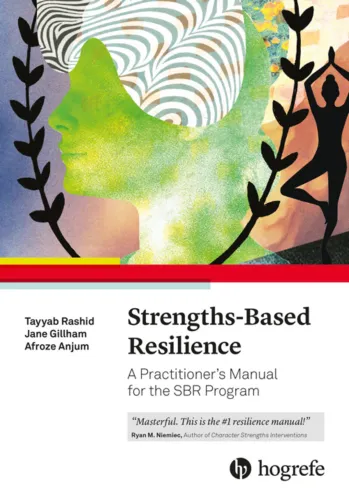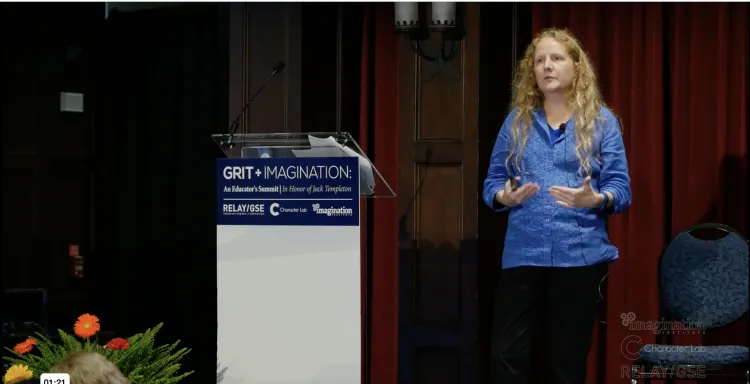- Courses and Research Mentoring
2025-2026:
- Sabbatical leave
2026-2027:
- Psychology 018. Well-Being (Fall 2026)
- Psychology 138C. Seminar in Clinical Psychology and Well-Being (Fall 2026)
- Psychology 109. Research Practicum in Social and Emotional Well-Being (Spring 2027)
- One additional course — to be determined (Spring 2027)
- Student thesis supervision (PSYC 096/097, PSYC 180)
- Interested in getting involved in the Well-Being Lab? (Information for Students)
Research in the lab:
In the Well-Being Lab, we conduct research that aims to increase our understanding of 1) the personal, interpersonal, and contextual factors that contribute to well-being and 2) the types of programs and interventions that increase well-being. Much of this research focuses on adolescents, young adults, and parents and caregivers.
Some of the current studies that students can assist with examine:
- College students' mental health and well-being. These studies examine personal, interpersonal, and contextual factors that may protect against common psychological difficulties such as depression and anxiety and promote well-being in young adults.
- Maternal wellness during pregnancy and postpartum. This research examines personal and interpersonal factors related to women’s well-being during the transition to motherhood.
- Brief well-being interventions. These studies focus on developing and examining the effects of brief interventions that aim to promote well-being.
Students who work in the lab frequently collaborate with me to develop and implement new projects.
Ways to get involved:
Swarthmore (and Tri-Co) students can get involved in research in several ways. During the academic year, students can get involved through:
- PSYC 109 Research Practicum in Well-Being
- Senior thesis work (PSYC 96 and 97; or two semesters of PSYC 180). Students who are interested in completing a thesis in the lab should contact me by early in the spring semester prior to their senior year.
- Volunteering
- Student Research Assistant Positions (part-time)
Summer Research Opportunities
Paid summer research opportunities in the lab are sometimes available for rising juniors and seniors who 1) have completed the recommended prerequisites (see below) and 2) have previously worked with me (e.g., through PSYC 018, PSYC 109, or PSYC 138C), with priority typically given to rising seniors who also plan to complete their senior thesis work in the lab. Note that summer work in the lab is completely optional and not a requirement for a thesis.
Students who are interested in working in the lab during the summer should contact me by November prior to the summer in which they hope to work in the lab (i.e., by November 2025 for summer 2026), so that we can meet in November or December to discuss potential projects and the summer research application process. Drafts of applications are due to me by mid-January, with final applications due in early February.
Recommended Prerequisites:
The following courses provide important background and are normally prerequisites for working in the lab:
- PSYC 025 Research Design and Analysis
- At least one of the following: PSYC 018 Well-Being; PSYC 038 Clinical Psychology
- Note that for thesis (PSYC 96/97 and PSYC 180), prerequisites also typically include a B+ average in psychology and overall.
Next steps:
If you are interested in getting involved in the lab, please reach out to me by email at jgillha1.
- Interested in participating in research?
Most semesters, the Well-Being Lab conducts research that examines students' experiences and well-being. During the Fall 2025, this includes the College Wellness Study (open to students in PSYC 001). For more information about these and other studies, see the Psychology Department' research opportunities webpage.
- Invitation for former students, research assistants, post-bacs, postdoctoral fellows, and visiting scholars
I am developing a section of my lab page that highlights former students, research assistants, post-bacs, postdoctoral fellows, and visiting scholars who have worked with me on research or applied work (including PSYC 090) at Swarthmore College or at the University of Pennsylvania (e.g., through the Penn Resiliency Project lab or the Master of Applied Positive Psychology program). Please contact me if you would like to be included in this listing. The listings will include your name, current affiliation and, if you would like, additional information such as a brief blurb about your current work, a photo, and a link to your professional website. Whether or not you're interested in being listed, I would love to hear from you. Thank you!
Jane Gillham
Eugene M. Lang Research Professor
On Leave - Academic Year
Psychology
Contact
Links
Affiliations: Psychology, Well-Being Lab, Study On Learning, Working, & Living
Additional Affiliations: Swarthmore Coalition on Well-Being
Interests: Clinical psychology, especially child and adolescent clinical psychology; prevention and treatment of depression in adolescence; well-being and mental health on college campuses; social and emotional well-being; resilience; positive psychology and positive education; school- and community-based interventions.

My work aims to promote well-being in people, especially adolescents and young adults. This work is at the intersection of clinical psychology, positive psychology, education, and public health. It aims to understand the personal, interpersonal, and contextual factors that affect well-being and risk for common mental health problems such as depression and anxiety. Much of my research and applied work focuses on the development, implementation, and evaluation of school- and community-based intervention programs designed to promote psychological resilience and well-being, and prevent common mental health problems in young people.
I collaborate with educators, counselors, and clinicians at schools and other organizations that serve youth and with researchers at many other academic institutions. Together, we have developed several well-being programs and curricula, including the Penn Resiliency Program and Strengths-Based Resilience. We have conducted large-scale evaluations of these and other school and community well-being programs. Much of this work has been funded by the Institute of Education Sciences and the National Institute of Mental Health, and many of our research papers are available for free online through PubMed.gov.
I also serve as a scientific advisor for WorldBeing, a nonprofit organization that collaborates with community partners to develop, implement, and evaluate well-being programs for youth in under-resourced communities in low and middle income countries. Over the years, I have served on the editorial boards of several academic journals, including as an Associate Editor for the Journal of Positive Psychology from 2010-2020 and a member of the editorial board for Psychological Bulletin.
At Swarthmore, I teach courses on clinical psychology and well-being, including Psyc 018 Well-Being (which is open to all students and has no prerequisites). I developed PSYC 018 with the goal of increasing students' knowledge of the personal, interpersonal, and contextual factors that contribute to well-being and the interventions, practices, policies, and everyday behaviors that can improve well-being. I hope that students who take this course will also leave it with increased knowledge and skills that facilitate their own well-being and their contributions to the well-being of others. I am a member of the Swarthmore Coalition on Well-being, a group of staff, students, and faculty who work together to promote well-being on campus.
I also mentor students who are interested in research and applied work in psychology and related fields. I co-created and frequently teach the clinical field placement course (Psyc 90), one of the longest running community-based learning courses at the College. I direct the Resilience and Well-Being Lab (aka Well-Being Lab) and supervise students who are conducting empirical research in the lab. Many of the students who work with me pursue graduate school and careers as researchers and practitioners in psychology and related fields.
Recent publications:
- Young, J.F., Jones, J.D., Schwartz, K.T.G., So, A., Dysart, G.C., Kanine, R.M., Gillham, J.E., Gallop, R., & Davis, M. (2025). Telehealth-delivered depression prevention: Short-term outcomes from a school-based randomized controlled trial. Journal of Consulting and Clinical Psychology. 93(4), 213–225. DOI: 10.1037/ccp0000913

- Rashid, T, Gillham, J., & Anjum, A. (2025). Strengths-Based Resilience: A Practitioner's Manual for the SBR Program. Hogrefe publishing.
- Rashid, T., Gillham, J., Louden, R., & Anjum, A. (2025). Strengths-Based Resilience Workbook. Hogrefe publishing.
- Gillham, J.E., & Brunwasser, S.M. (2024). Psychological interventions to prevent depression: A cause for hope. Lancet Psychiatry, 11 (12), 947-948. DOI: 10.1016/S2215-0366(24)00364-X
- Vélez, C.E., Hoang, K.N., Krause, E., & Gillham, J.E. (2024). The Rumination on Problems Questionnaire: Broadening our understanding of rumination and its links to depression, anxiety, and stress in young adults. Journal of Psychopathology and Behavioral Assessment, 46, 191–204. DOI: 10.1007/s10862-023-10103-2
- Métais, C, Burel, N, Gillham, JE, Tarquinio, C, & Martin-Krumm, C. (2022). Integrative review of the recent literature on human resilience: From concepts, theories, and discussions towards a complex understanding. European Journal of Psychology, 18, 98-119. DOI: 10.5964/ejop.2251. PMID: 35330859; PMCID: PMC8895705.
- Publications available through PubMed
Recent Presentations:
- Gillham, J.E. (September 19, 2025). Discussant for K.T.G. Schwartz (chair) symposium: Screening and prevention of depression and suicide in pediatric primary care. Developing and Researching Advanced Models of Integrated Primary Care (DREAM-IPC) conference, Wilmington, DE.
- Gillham, J.E. (April 27, 2025). Promoting students' resilience and strengths. Master of Applied Positive Psychology Program, University of Pennsylvania, Philadelphia, PA.
- Gillham, J., Murphy, C., Hackler, S., Eby, M., & Erley, A. (November 6, 2024). Course practices and policies that support student well-being: Preliminary findings from the SCW survey. Faculty lunch presentation, Swarthmore College, Swarthmore, PA.
- Gillham, J.E. (November 1, 2024). School-based depression prevention and well-being promotion. Psychology Department Seminar Series. Rowan University, Glassboro, NJ.
- Gillham, J.E. (May 29, 2024). Discussant for Young, J.F. et al. symposium: Insights from two adolescent depression prevention trials: Moderators, caregiver-youth symptom coupling, and telehealth implementation. Society for Prevention Research, Washington DC.
- Gillham, J.E. (March 12, 2024). Strengths-Based Resilience. Depression on College Campuses Conference, University of Michigan. Ann Arbor, MI.




